Pickles are a traditional condiment that trace back to Indian history. It is a dish that adds spice and flavour to the Indian cuisine. The very common pickles that you can find are lime and mango. In today’s day and age, the varieties have been extended to include many more vegetables in pickles like carrots, garlic and mix-veg. Some have taken it to the next level to make it more exotic by making pickles out of dates and prunes. There is another wide range of non-veg pickles that has originated from Kerala and has a stronghold in coastal regions like Goa, Vizag and Kolkata. It’s the traditional prawn and fish pickles that are very popular but the range has expanded to include chicken, lamb to make it appealing to meat eaters.
Pickle is always known as a homemade dish. Traditionally, it is prepared by the grandmother of the house. Homemade Recipes are very close to one’s heart as they spell the love, affection of the grand mums. The creativity, expertise and the uniqueness brings out the aroma and the taste in pickles
In today’s fast moving world, with people having nuclear families, with people traveling round the clock, many on the go products have hit the market. These products are readily available and one can buy it off the shelves. With many vendors entering the market over the past decade, with similar products has made this an exhaustive category in the retail segment.
The usage of acidic and low quality ingredients has downgraded the taste and quality of the products. The market is highly competitive and to the consumer he/she will always looks at easy availability and affordability. The contents or ingredients of the product do not garner much attention. Hence being acidic or not is secondary to the consumer.
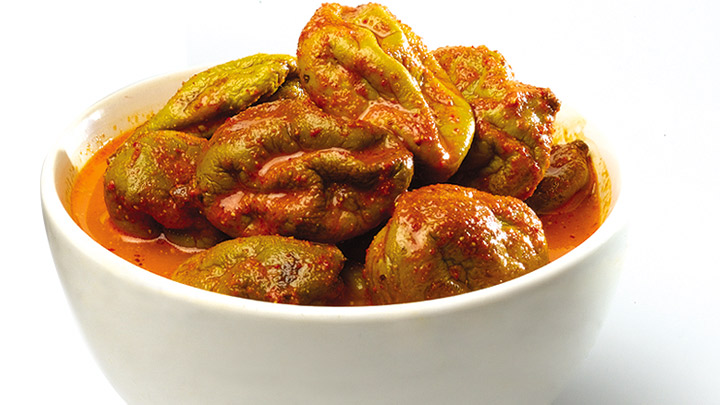
Image Source: Keralatourism.org
If we take the example of oil, traditionally Coconut oil was used for all pickles originated from Kerala. Today, what is available in the market is very low quality vegetable oil. Oil is a key ingredient for pickle that preserves the dish for a longer shelf life. A lot of home-made recipes also suggest using Olive oil which is also health and neutral.
Salt is another important ingredient so rather than just using any salt, it is now imperative to use the best and most healthy form of salt. The ingredients used in making the pickle goes a long way to ensure not just the taste is good but also offers humongous health benefits. Some of the key ingredients that need to be used in a pickle making process are:
Turmeric Powder – Turmeric Contains Bioactive Compounds With Powerful Medicinal Properties.
Fenugreek – Improves Digestive Problems and Cholesterol Levels. Reduces inflammation inside the body
Aesofitida – It helps in getting a relief from Asthma. Lowers blood pressure and sugar.
Mustard – It has high levels of Antioxidants and detoxifies liver and blood.
The Indian pickle is not just a familiar dish in India but has now expanded its resonance in the West. Taking the UK as an example, where Chicken Tikka Masala is the national dish, there are companies that produce authentic and traditional pickles or pickled masala’s which are consumed as a side dish to compliment a main meal which will either be bread or potatoes. There is where we can confidently say that East meets with West.
Things to note to make a delicious jar of pickle:-
- Making sure your main ingredient (prawn, fish, vegetable etc) is cut to a consistent size.
- Timing is everything in pickle making, each ingredient takes its own time to cook, for its flavours to be released so you have to make sure you don’t under cook or else it will taste raw or over cook it and burn it.
- Oil, Vinegar, salt, garlic, ginger, chilli and probiotic spices are the key ingredients in each of these bottles.
- It’s important to know which oil to use and each of them will render a different flavor. Since we naturally preserve and do not use nasty preservatives we have to make sure we use the right measurement of oil, salt and vinegar as they act as natural preservatives.
- Make sure the jars and lids you use for these pickles are sterilized thoroughly.
- Always store these jars in a cool, dry area.
And most importantly do not be lazy and make the mistake of putting a damp spoon in your jar of pickle, always use a clean dry spoon to keep the longevity of each of these bottles.
Image Source: businessinsider.in








































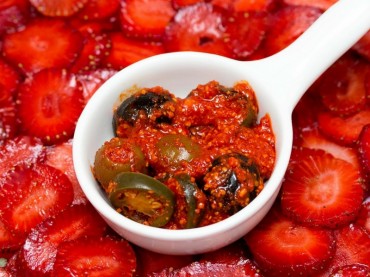








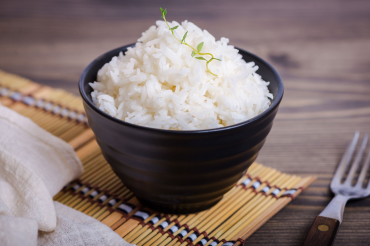
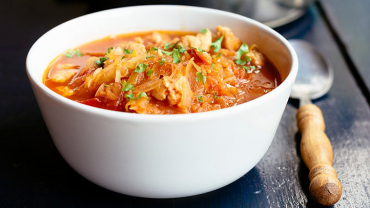
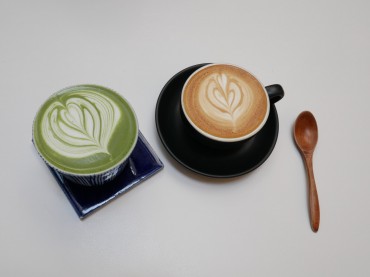

Comments